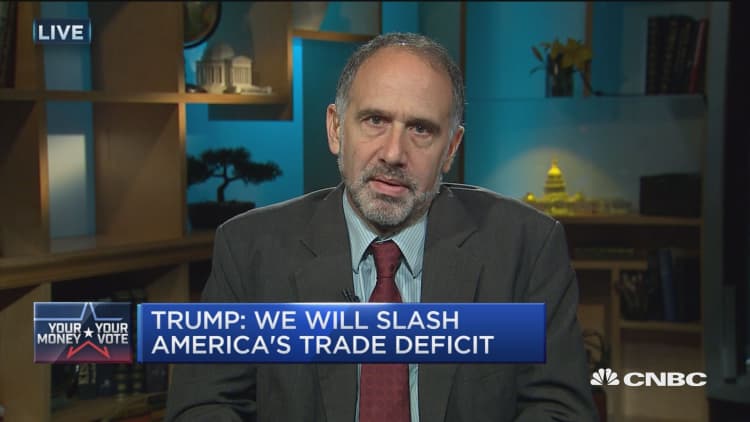Donald Trump's idea to cut taxes to spur economic growth "does not work" in theory or practice, the co-founder of the Center for Economic and Policy Research said Friday.
But a senior Trump economic advisor defended the supply-side economics practice.
"How many times do we need to keep doing this? I'm reminded of the [Bill Murray] movie 'Groundhog Day,' you keep waking up and it's the same story," Dean Baker, co-director of the left-leaning CEPR think tank, said on CNBC's "Squawk Box."
"We had this in the 1980s under Reagan," Baker said. He blamed weak economic growth when looking at the entire decade on supply-side Reaganomics.
Trump advisor David Malpass countered by saying President Ronald Reagan's policies did right the ship, after two recessions in the early 1980s due to an "extended period of malaise" left over from Jimmy Carter's time in the White House.
Supply-side economics looks to tax cuts as drivers of saving and investing to produce economic benefits that trickle down to the overall economy.
"The reality is when you put in good policies you get much faster growth," Malpass said. He said Trump advocates a federal corporate tax rate cut to 15 percent from 35 percent and tax cuts for middle- and lower-income Americans.

"My view is let's lower the tax rate, get rid of a lot of the gimmicks, and have more or less collected in taxes," Baker said. "If you collect less in taxes, sorry folks that means other people will have to pay more. That's the way arithmetic works."
In an appearance at the nonpartisan Economics Club of New York, Trump said Thursday his economic plan, including tax cuts, would average 3.5 percent growth and create a total of 25 million new jobs.
Saying the U.S. should strive to growth at 4 percent, Trump also said to the gathering: "My great economists don't want me to say this, but I think we can do better than that."
One of the ways to boost growth would be to make the dollar "the world's most trustworthy" currency, said Malpass, president of economic and market research firm Encima Global. "That can be done with stronger growth, with a better economy [and] a better fiscal structure."
"It's not really a demand side problem. The problem in the U.S. [economy], and I think globally, is people simply aren't investing because there's too much uncertainty," he said.


